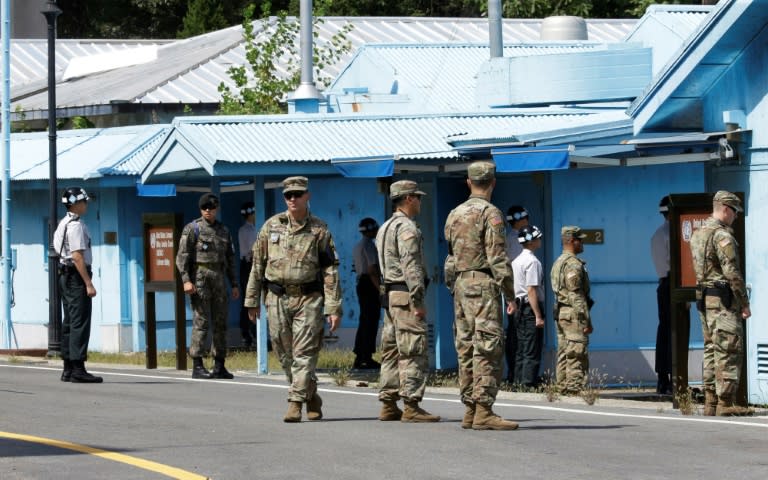Split approach on divided Korean peninsula
Seoul and Washington are moving apart -- even heading in different directions -- on nuclear-armed North Korea, analysts say, putting at risk the diplomatic process on the peninsula. South Korean President Moon Jae-in will travel to Pyongyang later this month for his third summit this year with the North's leader Kim Jong Un, Seoul announced Thursday, with the denuclearisation of the Korean peninsula on the agenda. Pyongyang has reaffirmed its commitment to the goal, but the term is a diplomatic euphemism open to interpretation on both sides. Senior US officials have for weeks been referring to the more precise "final, fully verified denuclearisation of North Korea" specifically, saying Kim promised it at his landmark Singapore summit with President Donald Trump. Pyongyang has made no such public declaration, however. Washington sent mixed messages Thursday, with Secretary of State Mike Pompeo saying the North still had an "enormous amount of work to do", while Trump thanked Kim and tweeted: "We will get it done together." "There's no question that Seoul and Washington are moving at different speeds in their respective relations with Pyongyang," said Evans Revere of the Brookings Institution in Washington. "It's also becoming clear that the two allies are not on the same page when it comes to North Korea." While Washington continues to prioritise the dismantling of Pyongyang's atomic arsenal, Revere said, Seoul has stressed measures to reduce tensions. Any major new goodwill measures by the South are "bound to raise hackles in Washington, create suspicions about... (Seoul's) agenda, and undermine alliance coordination", he added. - 'Insincere, dishonest, shallow' - South Korea and the US are "on a collision course" when it comes to the North, according to Andrei Lankov of Korea Risk Group, as their interests are fundamentally different. "For the United States essentially the only issue, why they worry about North Korea, is nuclear weapons, and they are willing to stop at pretty much nothing to have the nuclear issue solved," he said. But South Korea "can live with a nuclear North Korea", he added. "For them it is far more important to maintain stability at status quo." But Lankov warned that Pyongyang will never surrender its nuclear weapons, as North Korean leaders consider it "collective suicide". If the current diplomatic process fails, Washington could return to threats against Pyongyang, and possibly military action that could rapidly escalate and engulf the South. To prevent such a confrontation, Moon is creating "a wave of insincere, dishonest, shallow optimism", Lankov said. "The message is that basically denuclearisation is proceeding -- which it's not -- that everything is fine." The two allies, he said, were going to experience "a level of friction they have not seen for many, many years". - The Korean War problem - The most recent sticking point between Pyongyang and Washington has been a formal declaration that the Korean War, which ended with an armistice rather than a peace treaty, is over. The two Koreas have been pushing for such a move, but the US is wary, insisting on first making progress on stripping Pyongyang of its nuclear weapons. "In the North Korean negotiating list (a declaration) is something that was going to come relatively early," said John Delury of Yonsei University in Seoul. "They've been very frustrated that the Americans aren't giving on it." And while Seoul and Pyongyang are moving on a "shared approach", the parallel US-North Korea process is stuck at a time when both sides need to make compromises, Delury added. "It's a problem," he said. "Washington needs to speed up." The US, which backed Seoul against Pyongyang in the 1950-53 conflict, has 28,500 troops stationed on the peninsula to guard the South, a treaty ally. But Revere of Brookings said declaring the Korean War over could allow Pyongyang to argue that US forces are no longer needed in the South. A key goal for Pyongyang, he said, "is to create a situation in which a nuclear-armed North Korea faces a non-nuclear South Korea that no longer hosts US forces".



